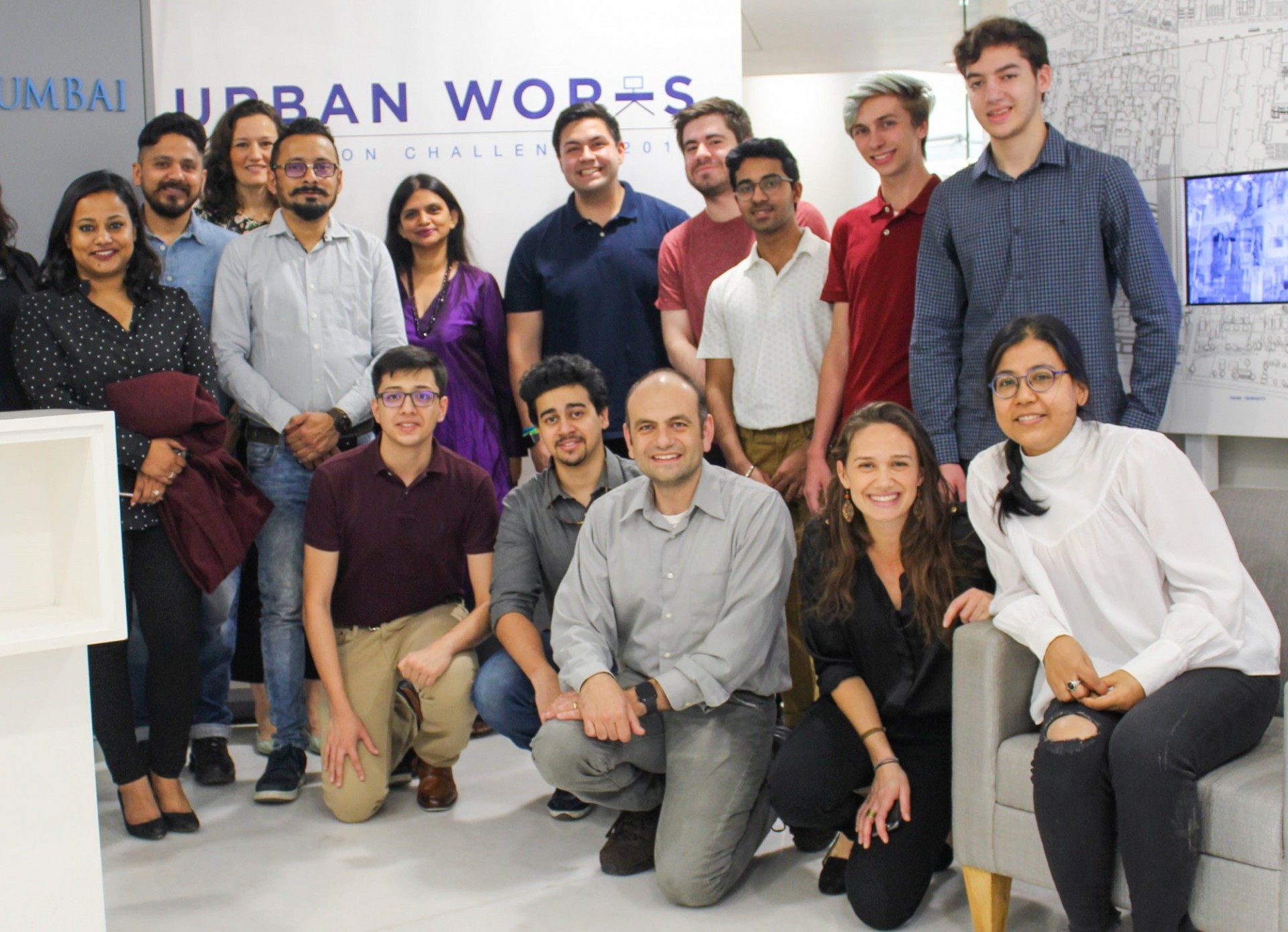Mentoring Social Impact Startups

Can software save the environment? Five undergraduate students from Columbia University who participated in the Urban Works Innovation Challenge (UWIC), believe it can! They are combining artificial intelligence with human ingenuity to explore a solution for waste management in India.
Ishaan Chandratreya, Raghav Mecheri, Ajit Akole, James Bollas, and Ketan Jog from Columbia’s class of 2022, most of them engineering students, attended an information session and workshop about UWIC on campus during the fall semester of 2018. Focused on supporting solutions for environmental problems in India’s urban workplaces, UWIC is a collaborative effort between the Columbia Global Centers | Mumbai and the Fu Foundation School of Engineering and Applied Sciences, in partnership with The CoWrks Foundry and the RMZ Foundation.
The problem they chose to address was that of waste segregation. The city of Mumbai alone generates approximately 7,000 metric tons of waste every day and this comes in multiple forms: biodegradables, recyclables, debris, and silt. Effective processing of each type of waste faces one critical hurdle – segregation. Currently, much of the waste accumulated in Indian cities is segregated elsewhere, known as secondary segregation, and large quantities of mixed waste continues to flood landfill sites in suburban areas. But what if segregating at source, in homes, factories, and offices, were easier, accurate, and more efficient?
The five students realized the potential of automating the process of trash segregation and thus, BinIt was born. The group applied to be a part of the inaugural cohort of the challenge and qualified as one of the three student team finalists. They traveled to Mumbai in January 2019 to attend a two-week seminar organized by the Center and to jump-start their market research.
They discovered the magnitude of the problem after experiencing a 1,000 metric-ton integrated solid waste processing facility in Mumbai and this caused a seminal shift in their outlook: the realization that this is a social and environmental problem too, not one of just of robotics or A.I. alone.
Another outcome, following field visits, was their improved understanding of waste segregation processes employed by major corporations in India. According to Ketan Jog, “Just being there in person, soaking it all in, and understanding how waste segregation truly works on a ground level really helped us comprehend the scale of what we were trying to achieve, and definitely helped drive us forward.”
BinIt emerged as the standout winners of the student track of the Urban Works Challenge. They were subsequently invited by Urban Works to travel to Bengaluru in late May where they participated in a demo day. As the team honed their pitch, their hands-on research also resulted in them pivoting from a business-to-consumer to a business-to-business model. BinIt had started out as an intelligent trash-can that used computer vision and robotics to automatically sort waste into different categories, with a world-leading trash-classification accuracy rate of over 90%. Their initial business model involved manufacturing and retailing consumer facing bins. BinIt today aims to work towards manufacturing and selling both user-facing bins, as well as large scale conveyor belt waste automation systems directly to large corporations across Asia. This helps balance the human and machine aspects of their innovation, making it more suitable to the Indian market where a large informal sector handles and sorts waste on a daily basis.
Thanks to the Urban Works opportunity and the progress made by the team on their venture over the course of the academic year, BinIt was also announced as the winner of the Undergraduate Track of the Columbia Venture Competition in 2019, Columbia University’s premier startup pitch competition. The team is now working towards launching a proof-of-concept with a few corporate partners across India and the United States, and all five of its members are excited to see what the future holds.